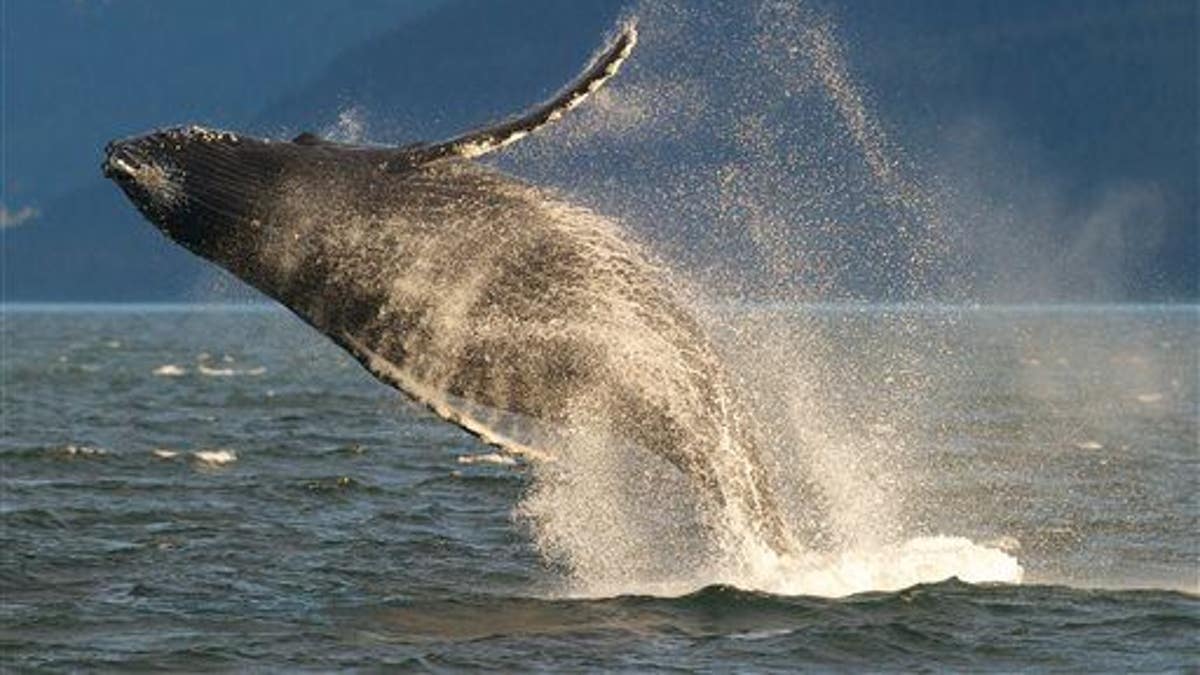
In this Wednesday, July 9, 2014 photo, an adult humpback whale breaches near Juneau, Alaska. The humpback whale is a species of baleen whale. (AP Photo/Juneau Empire, Michael Penn)
Great white sharks have nothing on the ancient megalodon, which grew up to 50 feet in length and sported teeth as long as 7 inches. And now scientists have their firmest timeframe yet for when the creature went extinct.
Scientists at the University of Florida in Gainesville report this week in the journal PLoS ONE that the feared shark died out 2.6 million years ago.
The team reached this estimate using a mathematical approach called Optimal Linear Estimation on 42 of the shark's most recent fossils, reports the University of Florida.
"People who are interested in this animal deserve to know what the scientific evidence shows, especially following Discovery Channel specials that implied megalodon may still be alive," says researcher Catalina Pimiento.
The researchers also noted that the extinction of the shark coincided with the growth of baleen whales to their large size today. "Now we need to find out if one event—megalodon's extinction—caused the other—evolution of gigantism in whales," notes Pimiento.
While there is no direct evidence that megalodon ate baleen whales, megalodon teeth are often found side-by-side whale fossils, reports the BBC. Scientists still don't know why the megalodon vanished.
(Read why Discovery's megalodon documentary caused an uproar last year.)
This article originally appeared on Newser: Whales Got So Big After Super-Sized Shark Died Out
More From Newser
